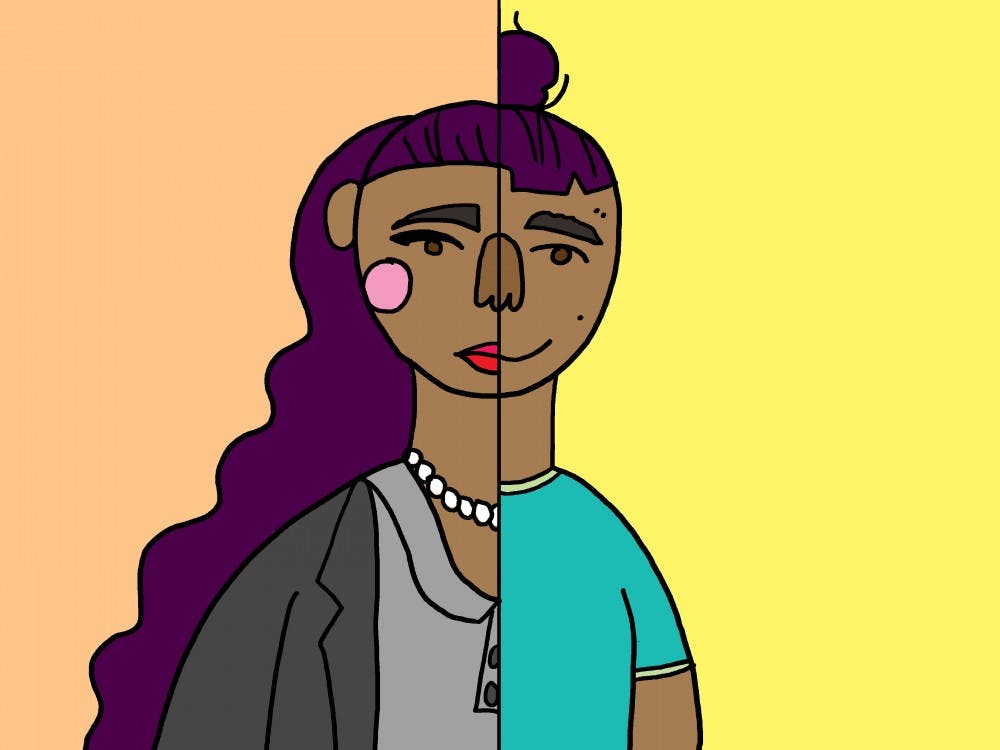Have you ever watched the news and noticed that most of the women look the same?
Sitting in my journalism classes, I feel that I can predict which female students will become successful in broadcast journalism solely based off their appearance.
Television news has a reputation for hiring the same kind of women: white, skinny, and blonde with cleavage.
There is a difference between dressing professionally and dressing sexually. A woman can feel confident and dress professionally without having to objectify herself.
“Dressing professionally increases your chances for being treated as such,” said Kristin Gilger, associate dean at ASU's Walter Cronkite School of Journalism and Mass Communication.
Gilger said Cronkite News, a broadcast outlet at the Cronkite School, doesn't seek to perpetuate stereotypes.
"At Cronkite News I think you will see quite a range,” Gilger said. “You’ll see that they don’t all look alike. We are looking for substance, someone who can deliver the news.”
According to the Cronkite News syllabus, there is a dress code for students, but women are under no obligation to wear anything specific.
The syllabus states: “Dress as you would for a paying job as a journalism professional. Keep in mind that you may have to go on camera, attend a press conference or interview the governor or a CEO on any given day."
Although the syllabus doesn't state that a journalist has to wear makeup, some may feel an implicit pressure to do so.
I am a Cronkite student who plans to become a broadcast journalist. I prefer a natural look, so I feel the odds are stacked against me when I go into interview with no makeup and a pantsuit.
Gilger said that there are times someone may need to wear makeup due to the camera's flaws, but appearance is not the only thing news outlets should take into consideration.
“I think the way you look matters for both men and women on television,” Gilger said. “Voice matters too.”
Gilger said that men, too, feel the pressure about their appearances She said that not only is there a desire for young, pretty blonde women, but also for fit men with a full head of hair to be put on air.
“There are standards and limits for both sexes,” Gilger said.
While men may feel pressured to look and sound a certain way, women feel the pressure more, especially with visible signs of age.
When women start to age producers may think, 'we can’t put her on the news anymore.’ The reason for this is that she is no longer sexually appealing. Seeing older men on television is more common than seeing older women.
“Television stations feel that there is a look that is acceptable or appealing to the mass audience,” Gilger said.
Gilger said that local television stations hire consultants who tell the stations what will sell and what won't. For example, the consultants assign stylists to help the women find outfits that are projected to please the audience.
Are these outfits intended to appeal the mass audience or just men? Often times, the low cut tops and short skirts would suggest the latter.
At Cronkite, people are asked to dress professionally, shifting away from a singular look.
We shouldn't put a woman down or not consider her for a job due to her looks. There is no pressure for a man to show up to a job interview with make-up and his hair curled or flat ironed, so why is that the expectation for women?
Reach the columnist at skmart13@asu.edu or follow @serena_mart on Twitter.
Editor’s note: The opinions presented in this column are the author’s and do not imply any endorsement from The State Press or its editors.
Want to join the conversation? Send an email to opiniondesk.statepress@gmail.com. Keep letters under 500 words and be sure to include your university affiliation. Anonymity will not be granted.
Like The State Press on Facebook and follow @statepress on Twitter.




